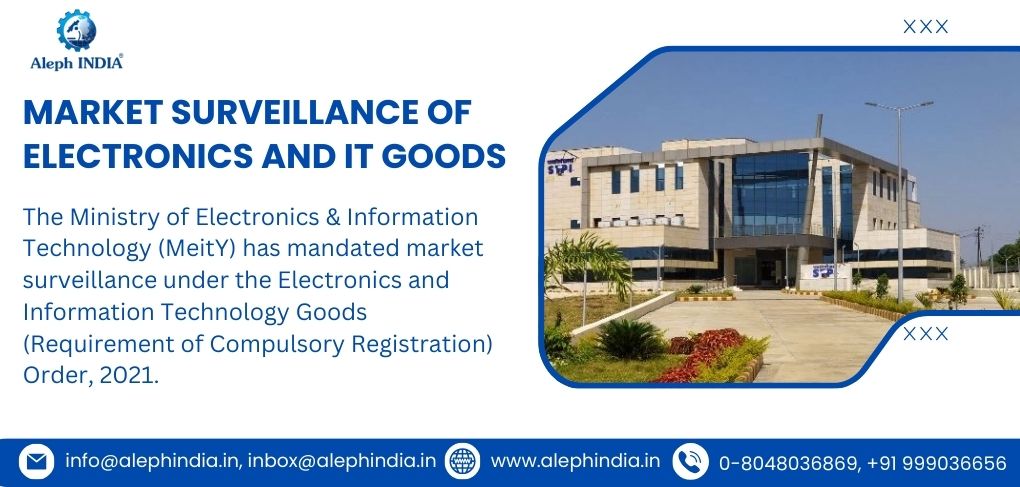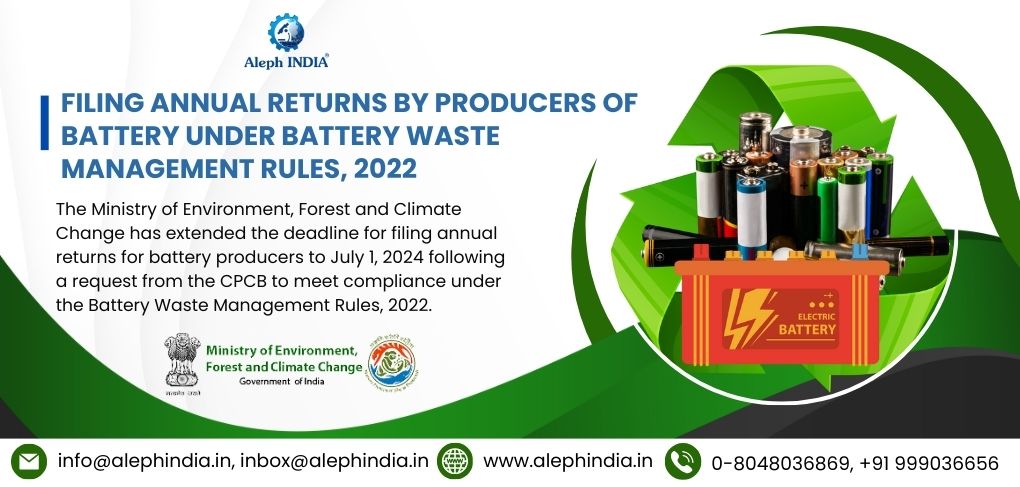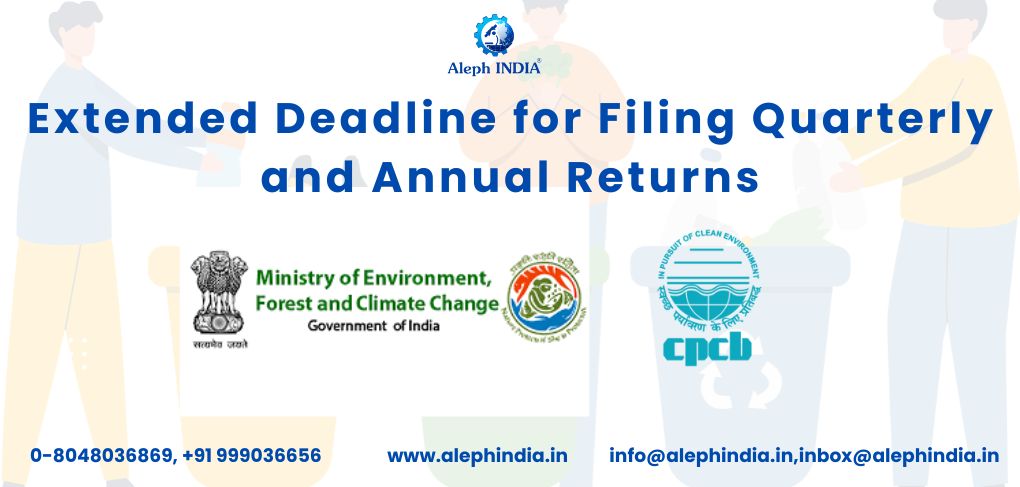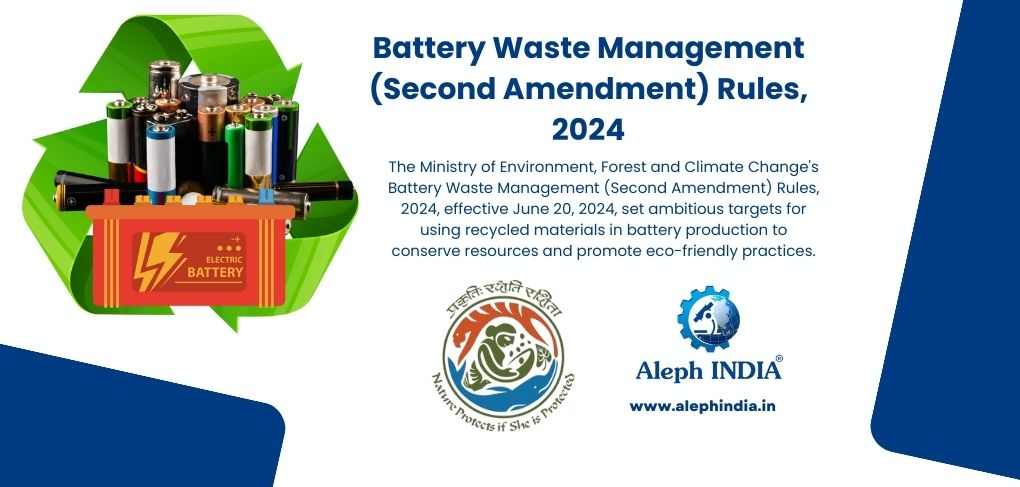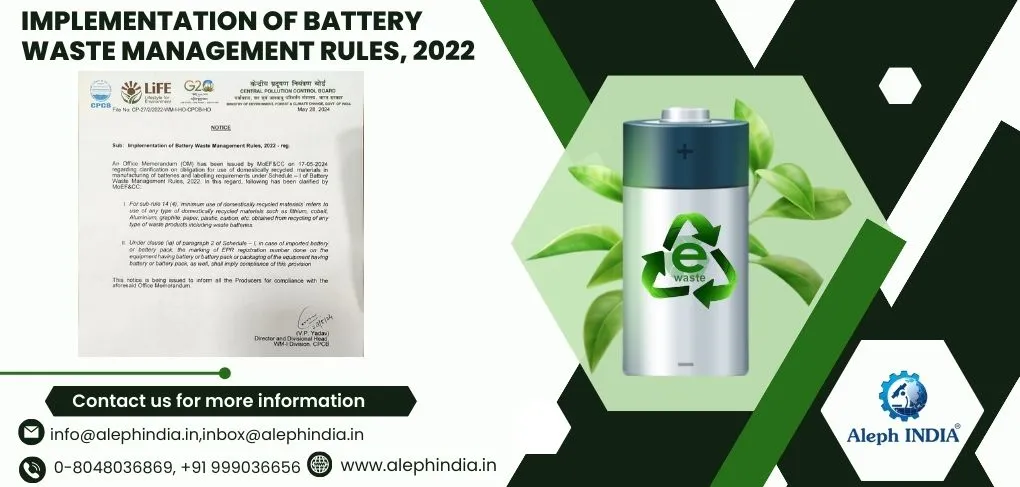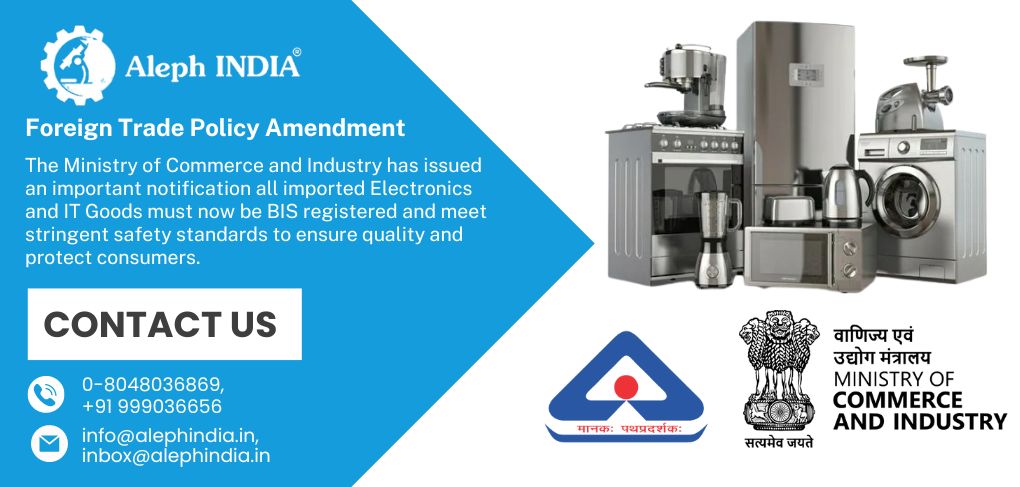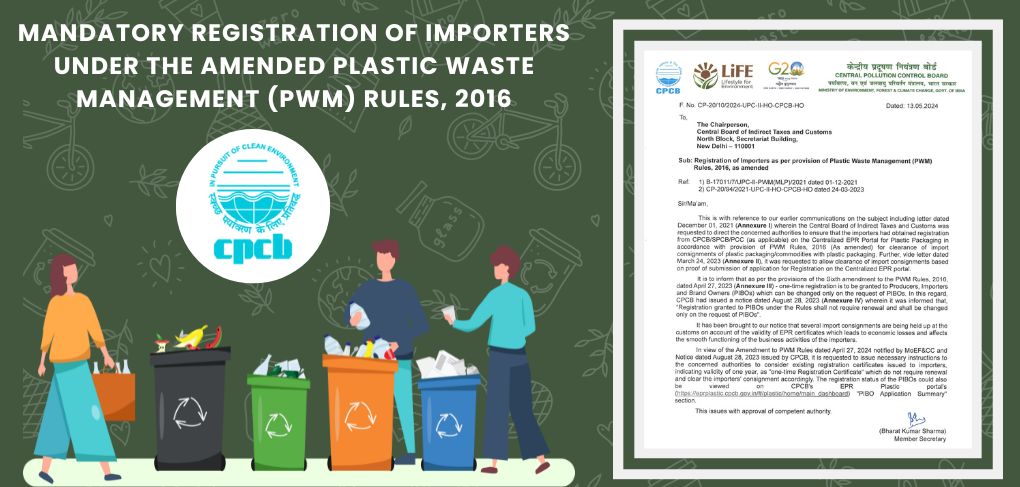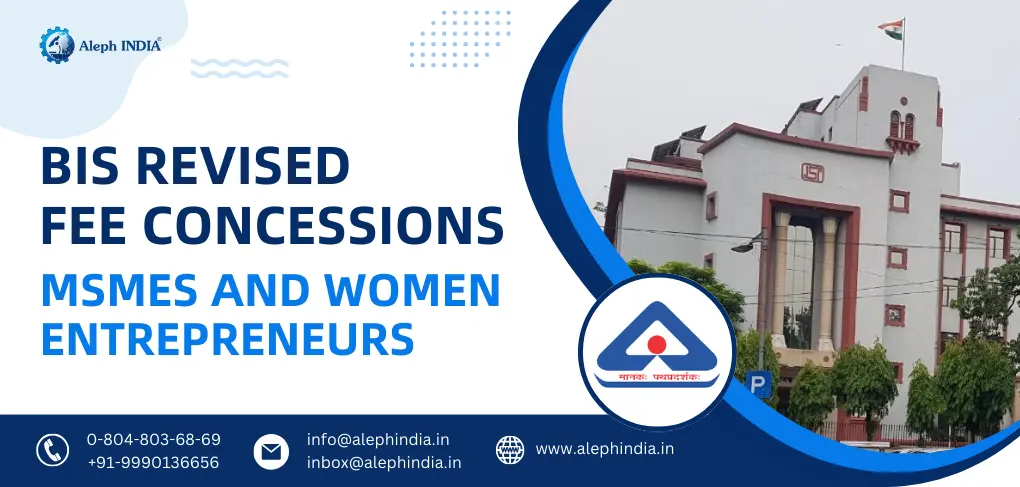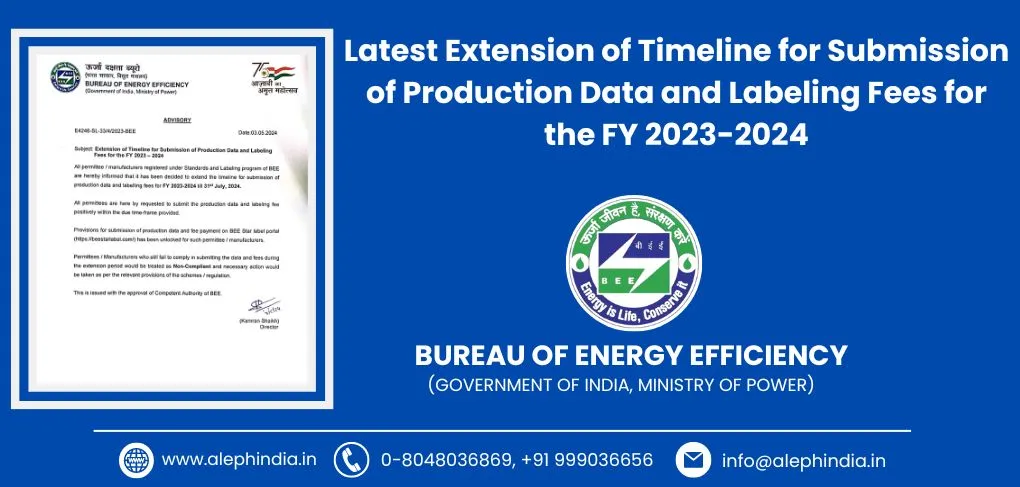- HOME
- ABOUT US
- SERVICES
-
LICENCE & CERTIFICATION
- BIS (ISI MARK) FOR FOREIGN MANUFACTURERS
- DOMESTIC PRODUCT CERTIFICATION (ISI MARK)
- BIS SCHEME X CERTIFICATION
- BIS CERTIFICATE OF CONFORMITY (CoC)
- BIS HALLMARKING
- BIS LICENCE FOR TOYS
- REACH CERTIFICATION (GLOBAL)
- COSMETIC REGISTRATION (CDSCO)
- LABORATORY RECOGNITION SCHEME (LRS)
- WORLD MANUFACTURER IDENTIFIER (WMI) CODE
- ECO MARK
- TAC APPROVAL FOR AUTOMOBILE
- DRUG LICENCE
- PESO CERTIFICATION
-
REGISTRATION
- BIS (CRS) REGISTRATION FOR ELECTRONIC PRODUCT
- WPC-ETA APPROVAL
- BEE CERTIFICATION
- E-WASTE MANAGEMENT (EPR)
- EPR REGISTRATION FOR PLASTIC WASTE MANAGEMENT
- EPR REGISTRATION FOR BATTERY WASTE MANAGEMENT
- EPR REGISTRATION FOR USED OIL
- LEGAL METROLOGY (LMPC)
- TEC/MTCTE APPROVAL
- CE CERTIFICATION
- UL CERTIFICATION
- ROHS LICENCE
- DRONE REGISTRATION
- MOEF LICENCE
-
AUXILIARY
- STANDARDIZATION (SCIENTIFIC) DIVISION
- TRAINING SERVICES (NATIONAL & INTERNATIONAL)
- IMPORT/EXPORT LICENCE
- FSSAI CERTIFICATION
- MSME/SSI/NSIC REGISTRATION
- ISO REGISTRATION
- BRAND REPRESENTATION
- LABORATORY EQUIPMENT AND SETUP
- TRADEMARK REGISTRATION
- MAKE IN INDIA SUPPORT
- AG-MARK LICENCE
- THIRD PARTY INSPECTION AND MONITORING SERVICES
-
- PORTFOLIO
- UPDATES
- CONTACT
- LOGIN
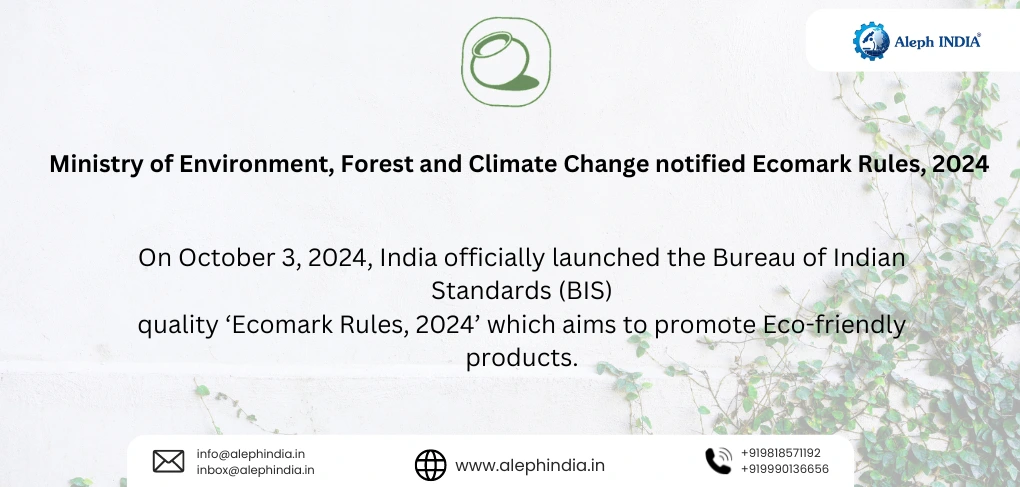
India’s Ecomark Rule 2024: A Step Towards Sustainable Plastic Products
On October 3, 2024, India officially launched the Bureau of Indian Standards (BIS) quality ‘Ecomark Rule, 2024’, aimed at significantly reducing the environmental impact of household products, particularly plastics. This initiative represents a pivotal shift towards sustainability, promoting a circular economy and encouraging manufacturers to adopt eco-friendly practices.
What is Ecomark?
Ecomark is an eco-labeling initiative introduced by the Government of India through the Ministry of Environment Forest & Climate Change (MoEF&CC). It is designed to inform consumers about the environmental credentials of products, allowing them to make informed purchasing decisions. By implementing the Ecomark, India seeks to enhance resource efficiency, lower energy consumption, and promote conservation efforts, aligning with the principles of ‘LiFE’ (Lifestyle for Environment).
Product Eligibility and Criteria
The Ecomark is applicable to a wide range of household products, including plastics. To qualify for the Ecomark, products must meet specific environmental criteria, which include:
- Resource Consumption: Efficient use of natural resources and raw materials.
- Waste and Emissions: Minimization of waste generation and harmful emissions throughout the production process.
- Recyclability: Products must be recyclable or made from recycled materials, aiming to reduce reliance on non-renewable resources.
- Hazardous Substances: The use of hazardous substances should be minimized or eliminated.
These criteria ensure that products not only adhere to environmental standards but also contribute to the overall reduction of pollution and resource depletion.
Application Process
Manufacturers seeking Ecomark certification must submit an application to the Central Pollution Control Board (CPCB), along with relevant documentation. The CPCB, or a designated verifier, will then assess whether the product complies with Ecomark criteria. Successful applications will result in a three-year certification, with producers required to submit annual reports on their compliance.
Addressing Misrepresentation
The Ecomark Rule includes strict guidelines to prevent the misrepresentation of products. If a manufacturer is found to have provided false information or concealed pertinent details, the CPCB has the authority to suspend or cancel the Ecomark certification after giving the manufacturer a chance to respond. This ensures the integrity of the Ecomark as a trustworthy label for environmentally friendly products.
Products Covered Under Ecomark
The Ecomark certification is mandatory for various consumer products, including:
- Architectural paints and coatings
- Batteries and lubricant oils
- Soaps and detergents
- Food packaging materials
- Plastic products
- Textiles and leather goods
Importantly, all plastic products must meet the relevant BIS standards concerning quality, safety, and performance.
The Road Ahead
The introduction of the Ecomark Rule 2024 marks a significant milestone in India’s journey towards sustainable development. By promoting the use of eco-friendly materials and encouraging responsible production practices, this initiative aims to foster a culture of sustainability among manufacturers and consumers alike.
For businesses, adapting to the Ecomark standards will not only enhance their product offerings but also position them as leaders in the green economy. As consumers become increasingly aware of environmental issues, the demand for certified eco-friendly products is expected to rise, driving further innovation in sustainable practices.
Stay tuned for more updates on how the Ecomark initiative unfolds and its impact on the market and environment. Together, we can contribute to a greener, more sustainable future!


